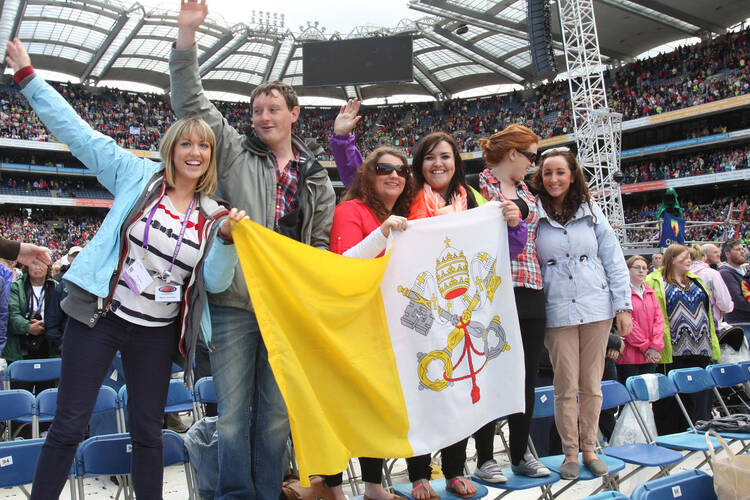The family is at the heart of church and society. There’s nothing new in that sentiment. Nor is there any great shock in the recognition that ‘family’ here is defined as the traditional family envisioned by the church for generations as imitating the Holy Family. When something is so central to what binds us, tighter definitions are approached with caution. As Catholics we know this all too well. When Pope Paul VI issued "Humanae Vitae" in 1968 he was writing to a church united in its understanding of the world. The last four decades have seen the development of a more conscientious, pluralistic church, struggling to understand itself as one, holy and apostolic. When, this past October, Pope Francis called a synod on the family he embarked down a road that risks producing division as much as unity, but then being surprised by Francis is hardly surprising.
Already, preparations for the synod have revealed the extent to which official teaching and lived experience of the church have diverged. The working document released last week shows a church populated by twenty-something lovers, LGBT families and couples given a second shot at love after the struggle of separation and divorce. The traditional family ideal is as beautiful as ever but many today see its beauty in the love it enshrines, equally evident in increasingly visible variety. This week we read the Supreme Court’s ruling on the Hobby Lobby case and Catholics argued out both sides of the case in homes and offices all over the U.S. Many of us stand with the spirit that animates "Humanae Vitae" while disagreeing with its proscriptions; many more struggle with what religious liberty means in a pluralistic society. And so what is emerging is a church both thinking and feeling its way towards truth.
These two weeks are an exciting time to reflect on this vision of Catholicism. As a European, my stock response to overt American patriotism is to cringe (see the Irish resistance to being ranked first on the Good Country Index last week) but being here for Independence Day makes me reflect on whether America is the still the land of the free. Last weekend, New York saw an explosion of color onto its manicured Fifth Avenue as the Gay Pride parade marched through Manhattan. Two memories came to mind as my subway car hurtled south to join it. In summer 2008 I was in Sydney for World Youth Day. The streets thronged with young people waving flags and singing, bustling with the excitement that comes from knowing they aren’t alone and proud of their identity as young people marked by faith. In summer 2012 I was in Dublin for the Eucharistic Congress. As the children of abusive triumphalism, we’re slow to express our Catholic pride too exuberantly. We’ve grown accustomed to skulking to and from Mass for fear our friends may judge us as backward and judgmental, but, even if softly spoken, our joy in seeing others like us was evident and some pride again began to bud.
Both events were happy memories, but at both we were faced with the tension of the teaching/experience gulf. At both we were met with LGBT protests and struggled with the barrier between "us" and "them." The protesters were enraged by our joy, seeing in it some threat to their own; as if our swollen parades were dedicated to an-anti LGBT agenda. It hurts when the church espouses views that I do not share but it’s also a source of great joy when it speaks for truth and love.
And so, last weekend I arrived at the pride parade filled with the anxiety of being forced into opposing sides in a battle I don’t believe in. I met my friends outside a church with rainbow flags hanging from its pillars and watched as crowds of young people waved flags and sang, bustling with excitement, proud of their identity and celebrating their not being alone. My anxiety dissipated as church groups marched past us, celebrating the Source of love, and I felt truly free. This Independence Day I can believe in a land of the free as the place where there is no "us" and "them" and where we can all wave flags and sing, excited by the joy we have found in love.
Ronan McCoy is a summer intern at America.








